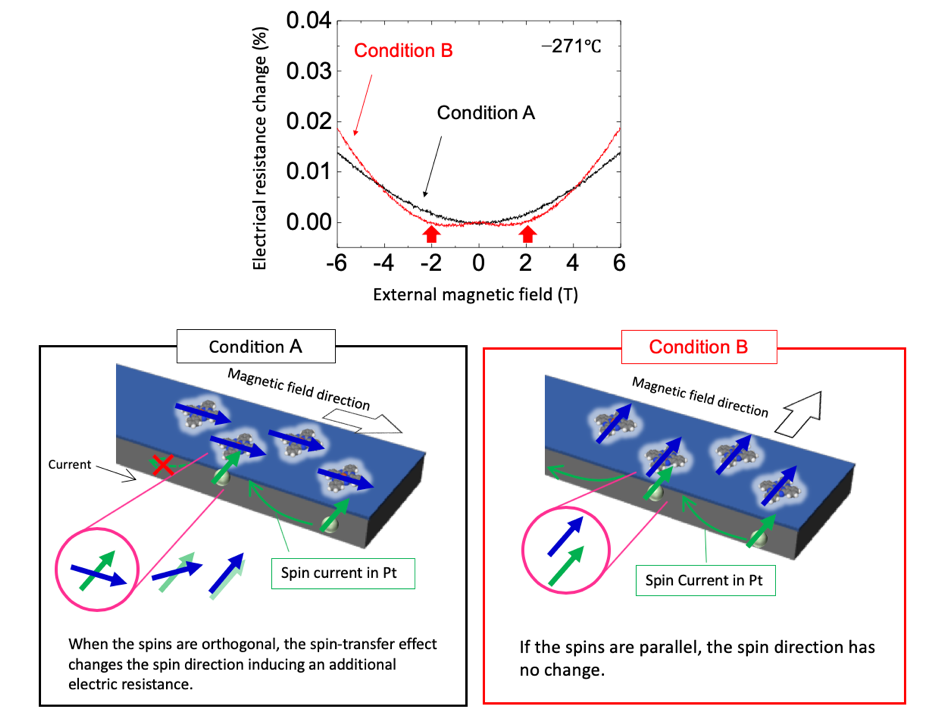Spin Transfer from Metal to Organic Molecule ~ Milestone towards integrated quantum computing using molecules ~
A research group led by Associate Professor Shinji Miwa at the Institute for Solid State Physics (ISSP), The University of Tokyo reveals that a phthalocyanine molecular film adsorbed on the surface of platinum wire exhibits a spin-Hall magnetoresistance effect. They demonstrates spin-transfer from platinum to magnetic organic molecules. Phthalocyanine is widely used as a blue pigment for road signs and is also known as a high-quality magnetic molecule with spin.

Magnetic field direction dependence of change of electric resistance in platinum wire device adsorbed with iron(II)-phthalocyanine. When the spin direction of iron(II)-phthalocyanine is parallel to the current by an external magnetic field, the resistance is large due to spin-transfer (Condition A). When the spin direction of iron(II)-phthalocyanine is perpendicular to the current by an external magnetic field, spin-transfer does not occur and the resistance is small (Condition B). Therefore, the change of electrical resistance exhibits spin-transfer from the spin current of platinum to iron(II)-phthalocyanine.
Spin-transfer technology is fundamental part of spintronics research and is the main principle applied to non-volatile memory MRAM. Since MRAM does not require power to maintain information, spintronics has potential to deal with reducing power consumption of IT equipment. Therefore spintronics could be extremely important for global sustainability and help enrich our life.
The research group finds that the spin-transfer effect can be used as spin torque in a molecular system. The spin transfer is known to work with metallic magnets. In this study, they find that it works with organic molecules. Since organic molecules have a sufficiently long coherence retention time, the spin-transfer effect in a molecule may be used as a bit initialization technology for quantum computers. This research result has been published in Nano Letters on December 12, 2019.
Reference
- Journal: Nano Letters
- Title:Detection of spin-transfer from metal to molecule by magnetoresistance measurement
- Authors: Hiromu Gamou, Koki Shimose, Ryoto Enoki, Emi Minamitani, Akitoshi Shiotari, Yoshinori Kotani, Kentaro Toyoki, Tetsuya Nakamura, Yoshiaki Sugimoto, Makoto Kohda, Junsaku Nitta and Shinji Miwa*
- DOI:http://dx.doi.org/10.1021/acs.nanolett.9b03110
